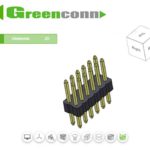Modular Connector Solutions Enable Designers to Create Affordable Custom Connectors
Connector suppliers are delivering flexible and modular solutions that enable customers to meet their connector needs without the expense of a truly custom connector product.

The connector market is made up of astounding complexity. From rugged power connectors used on ships at sea to the high-speed connectors used in data centers, the range of connectors available to the designer is bewildering. With such a vast array of options, it seems strange that there are occasions in which the engineer cannot find the perfect solution, but there is a significant market for custom connectors.
Designing and manufacturing a custom connector is an expensive business. Even the simplest connector represents a variety of different engineering challenges, not least in the manufacturing processes required to produce a finished item. Molding, machining, stamping, and plating all contribute to connector design. The costs involved are high, and so most manufacturers will look carefully at the risks and rewards before deciding to create a new product.
Despite the plethora of options available to customers and the costs associated with deviating from the straight and narrow, sometimes there is no other choice but to specify a custom component. Off-the-shelf solutions might be too large (or not large enough), might not carry the right current, or aren’t able to withstand particular operating conditions. For new or unique applications, there will often be a need for a custom solution.
Creating Custom Connectors
Several connector suppliers have tried to solve the need for bespoke solutions with a modular approach in which customers can purchase a series of interlocking subcomponents. These are then assembled — in a manner similar to building with LEGO bricks — by the customer to make a complete connector solution. Modular components, with their huge flexibility, are an excellent choice. However, they do impose a considerable burden on the customer in terms of the time and skills needed to assemble them correctly, making them less than perfect for high-volume applications.
The challenge for manufacturers is therefore to create a solution that will satisfy the needs of customers without imposing the long lead-time and high setup costs associated with true customized connectors. This challenge has been addressed in a number of ways.
Enhanced Service Solutions
Samtec’s solution is to provide customers with a wide choice of standard components that can be combined to create a very large number of options. Terminals are held in stock with a variety of lengths, styles, and plating options, and can be chosen in combination with a wide array of standard insulator types. Samtec has designed these molded parts in such a way that they can be trimmed to size, allowing customers to select a non-standard length without the need for new tooling.
Like many manufacturers, Samtec employs a descriptive part numbering system that details every aspect of the product. The customer uses conventional ordering processes, and Samtec can respond by assembling the required connectors from components held in stock. The result is a product designed to the customer’s specifications, delivered rapidly without the burden of engineering fees or minimum order quantities.
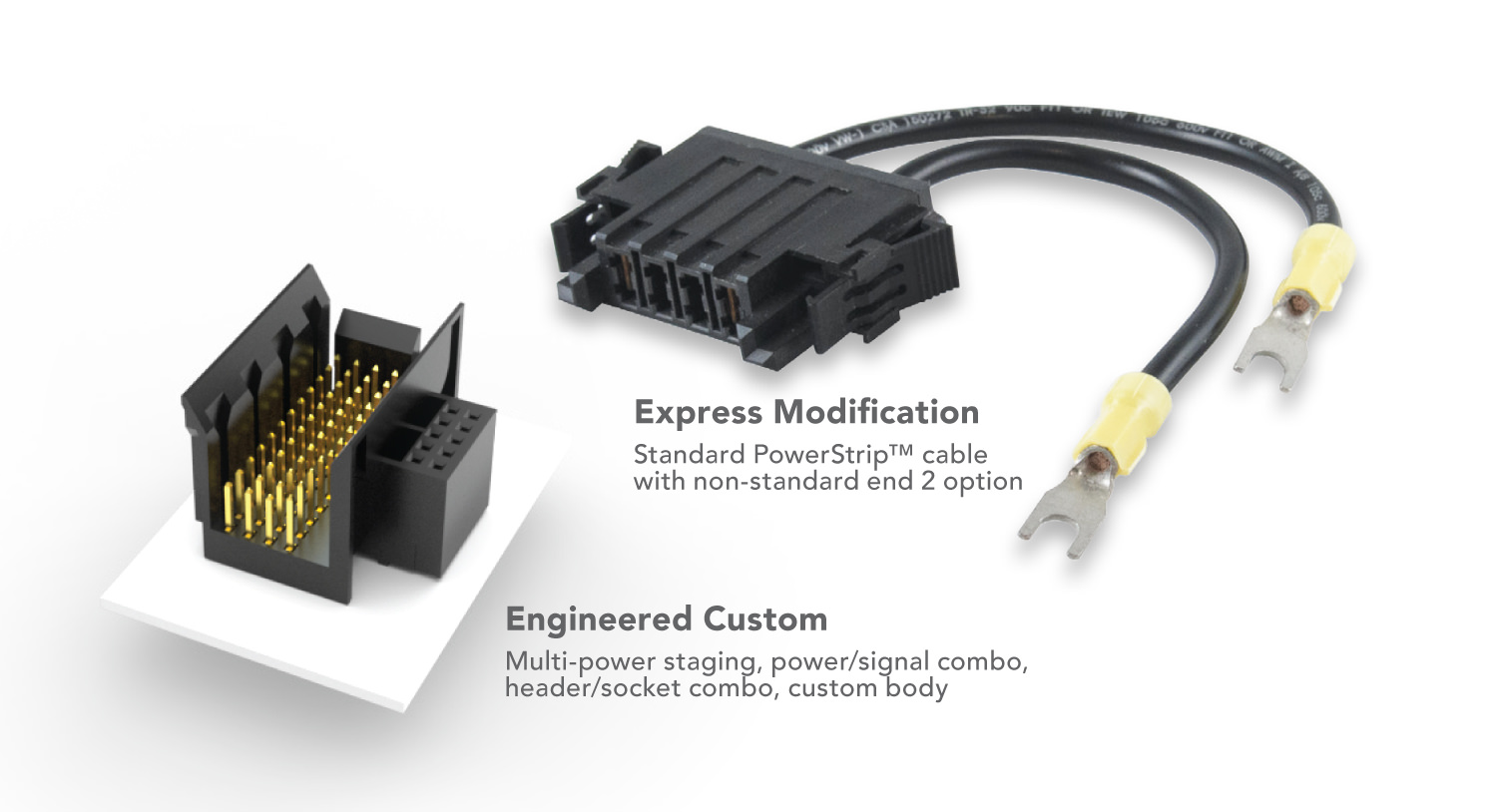
Samtec makes custom products when the perfect connector doesn’t exist, but modifying an existing product is a fast, economical solution for many designers.
This solution is ideal for relatively simple connectors, such as pin headers, that need a minor modification to serve the needs of an application. These are a staple of the connector industry, and despite more sophisticated connectors being available, they are still used in vast quantities for a wide variety of applications. However, a different approach is needed for more sophisticated solutions.
High-Reliability Solutions
Connectors designed for demanding applications require a different manufacturing technique. Many products destined for harsh environments employ screw-machined contacts to provide the high reliability demanded by the customer. With the increasing adoption of computer numeric controlled (CNC) equipment, manufacturers have found it easier to modify the design of their machined contacts. This provides greater flexibility in their ability to respond to customer requirements. One manufacturer that has specialized in connectors with screw-machined contacts is Positronic.
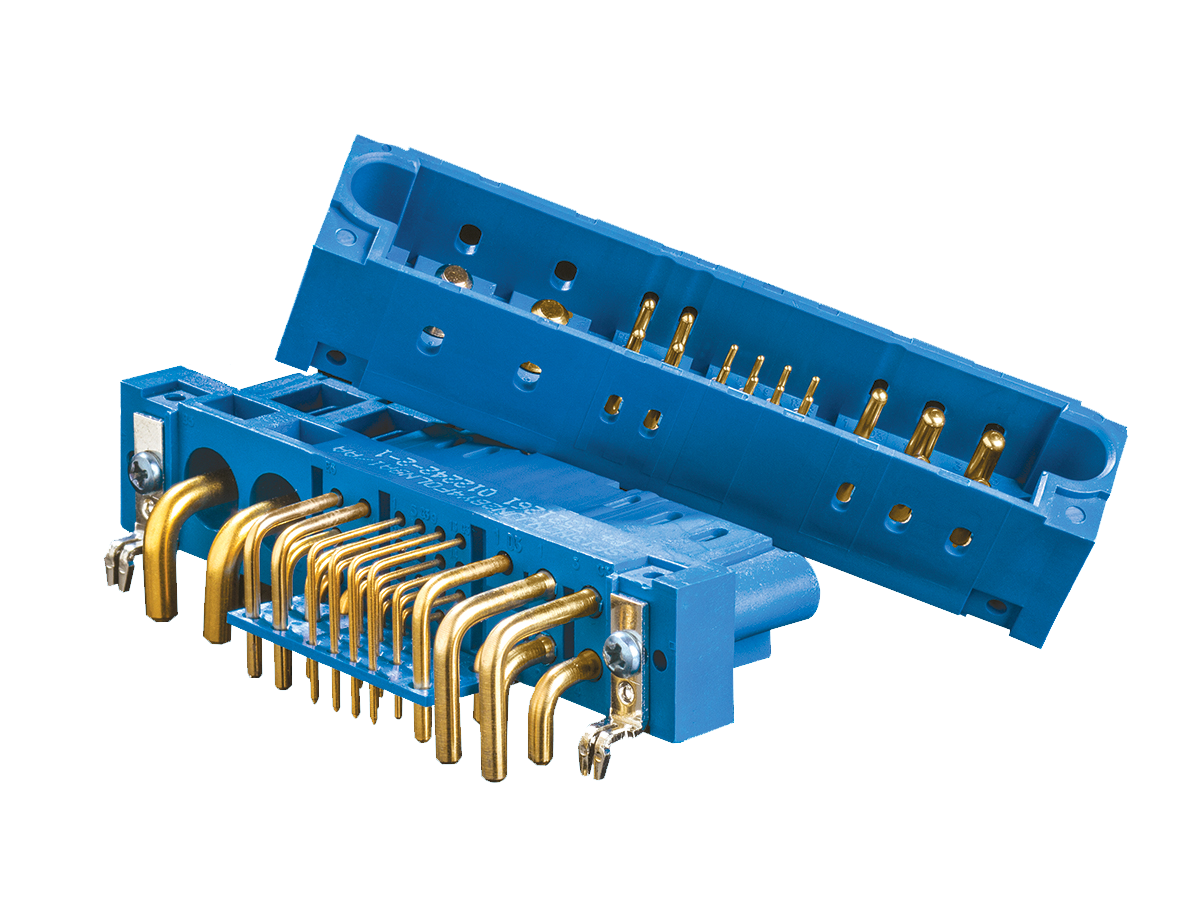
Positronic’s SP Series connector, part of the Scorpion Family, is a standard-height modular power/signal connector that can be populated to customer specifications to create a connector with the specific contact configurations, mounting options, shielding, voltage, and other requirements needed for a unique application.
Positronic offers connectors that can be manufactured to specific requirements. Extended-length contacts, partial loading (where only a selection of cavities within the connector actually contain a contact), and custom plating are all relatively easy to accommodate within existing manufacturing processes. However, one of the main limiting factors was the connector body. Like most other producers, Positronic molds its connector insulators, and the production of a new mold tool is a complex and expensive process. Cost is often the greatest barrier to the production of a custom connector.
To give customers access to special molds without the high cost of new tooling, Positronic developed the Scorpion series. Scorpion is a family of connectors that allows the combination of up to seven different contact sizes within a single connector. The contacts themselves are of a common design and are already produced for some of Positronic’s other product ranges. The real innovation is in how the insulator is created. The Scorpion system allows customers to choose the contacts required for its connector from a list of standardized frames. This is similar to the Han-Modular from HARTING, another line of modular connectors.
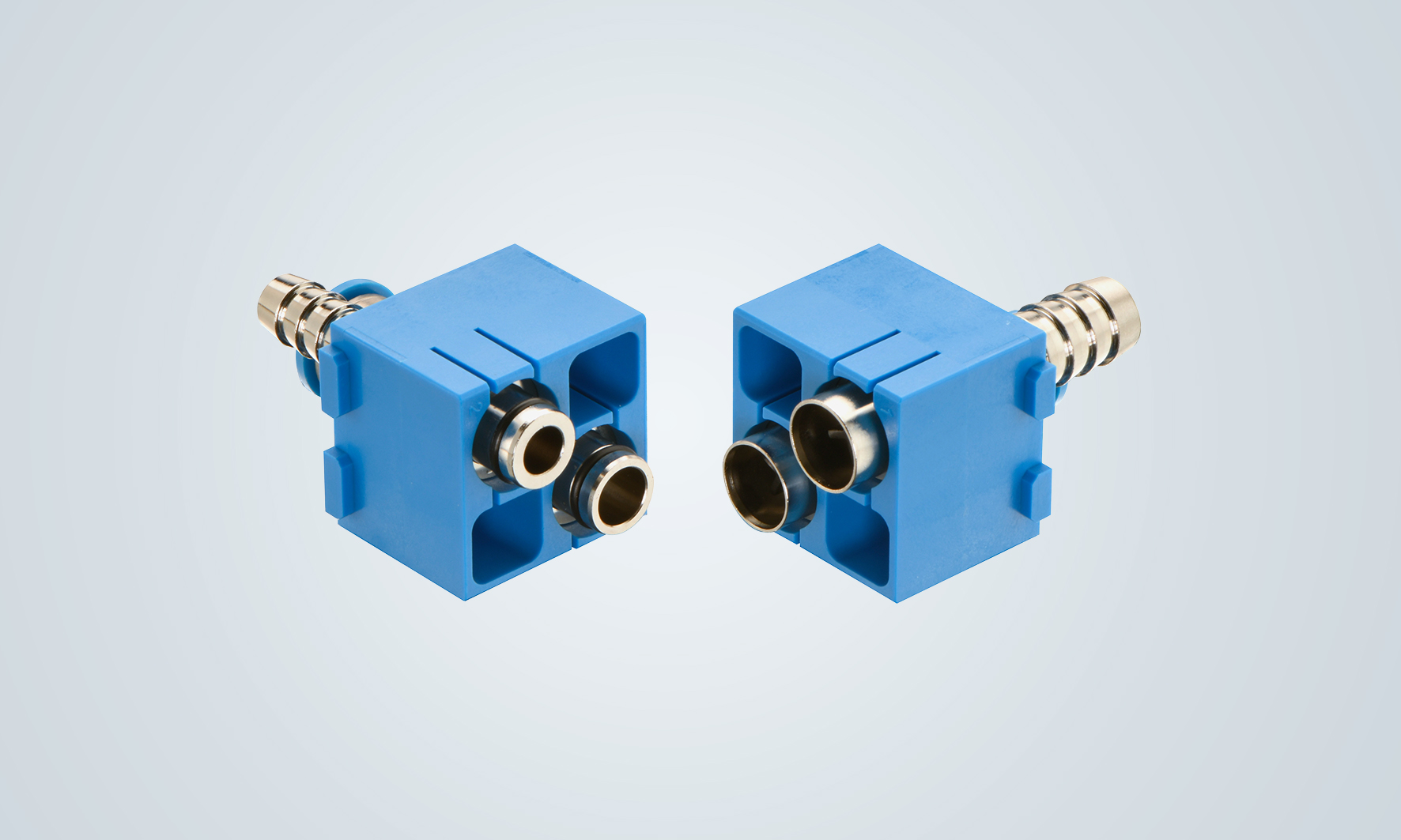
HARTING’s Han-Modular® Pneumatic Double Module, a connector for compressed air transmission, is part of HARTING’s versatile Han-Modular solution family, which offers designers versatile interfaces with a variety of choices to meet application needs.
The difference comes in how the connector is made. Unlike the other common solutions, it is actually the mold tool itself that is modular, rather than the connector. Positronic assembles the mold tool according to the customer’s requirements. The only limitation to the variety of options available is the maximum size of the mold that can be inserted into the molding machine. Once this process is completed, Positronic creates the Scorpion insulator as a single piece, incorporating all of the requirements as specified by the customer. The insulator can then be populated with the required contacts.
Customers can specify their exact connectivity needs as if they were choosing a modular connector, but will instead receive a single, factory-made part that requires no additional assembly. In addition, this process is repeatable; customers can reorder their connectors safe in the knowledge that the latest delivery will be identical to the first.
Nicomatic has taken a similar approach with its families of high-reliability micro connectors. The CMM and EMM families are based on 2mm and 1.27mm pitches, respectively, and feature screw-machined contacts for superior electrical and mechanical performance. The customer can choose the number of rows and contacts, and the connector insulator is molded as a single piece.
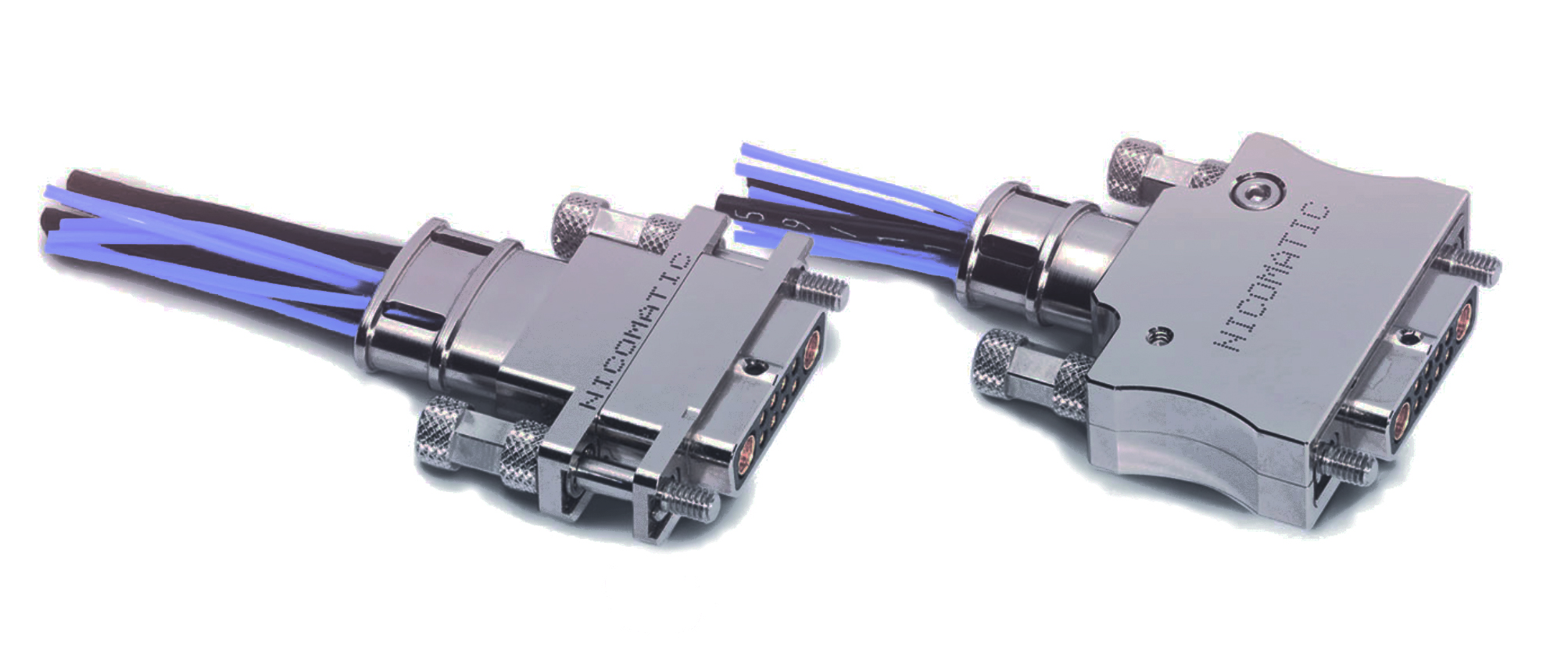
Nicomatic’s DMM connectors feature a modular construction that facilitates up to 10 million combinations of signal, power, and coax capabilities. Based on a 2mm pitch, the DMM family includes board-to-board, board-to-wire, and panel mount (1-4 contact rows). Maintenance is simple, since contacts can be removed.
Even more interesting is the DMM family. Using a 2mm pitch and offering a combination of low frequency and power contacts, the DMM features a machined aluminum housing to provide both mechanical strength and shielding from electromagnetic interference (EMI). Designed for aerospace and military applications, the reliability of the DMM family is paramount. Manufactured in accordance with EN/AS 9100 and delivering the same performance as Micro-D connectors qualified to MIL-DTL-83513, the DMM family offers the flexibility of a custom connector with the reliability of a factory-built product.
Customized or Tailored?
Connectors are called upon to perform such a wide range of roles, from low frequency to high voltage, under incredibly varied conditions, so no manufacturer can hope to provide solutions for all needs. However, the complexity of creating custom connectors often prevents designers from gaining access to the ideal product for their applications.
Fortunately, manufacturers are delivering unique and flexible solutions that enable customers to meet their connector needs without the expense of a truly customized product. Perhaps tailored is a more fitting word than custom. Whichever term you use, rest assured that there is a solution for you out there that may not cost as much as you feared.
Like this article? Check out our other Connector Basics, and High-Reliability articles, our Datacom and Telecom, Industrial and Military and Aerospace Market Pages, and our 2021 and 2020 Article Archives.
- Connectors For Electronics - June 29, 2021
- Modular Connector Solutions Enable Designers to Create Affordable Custom Connectors - April 27, 2021
- Sealed Connectors Protect Against the Hazards of the Transportation Industry - March 2, 2021



